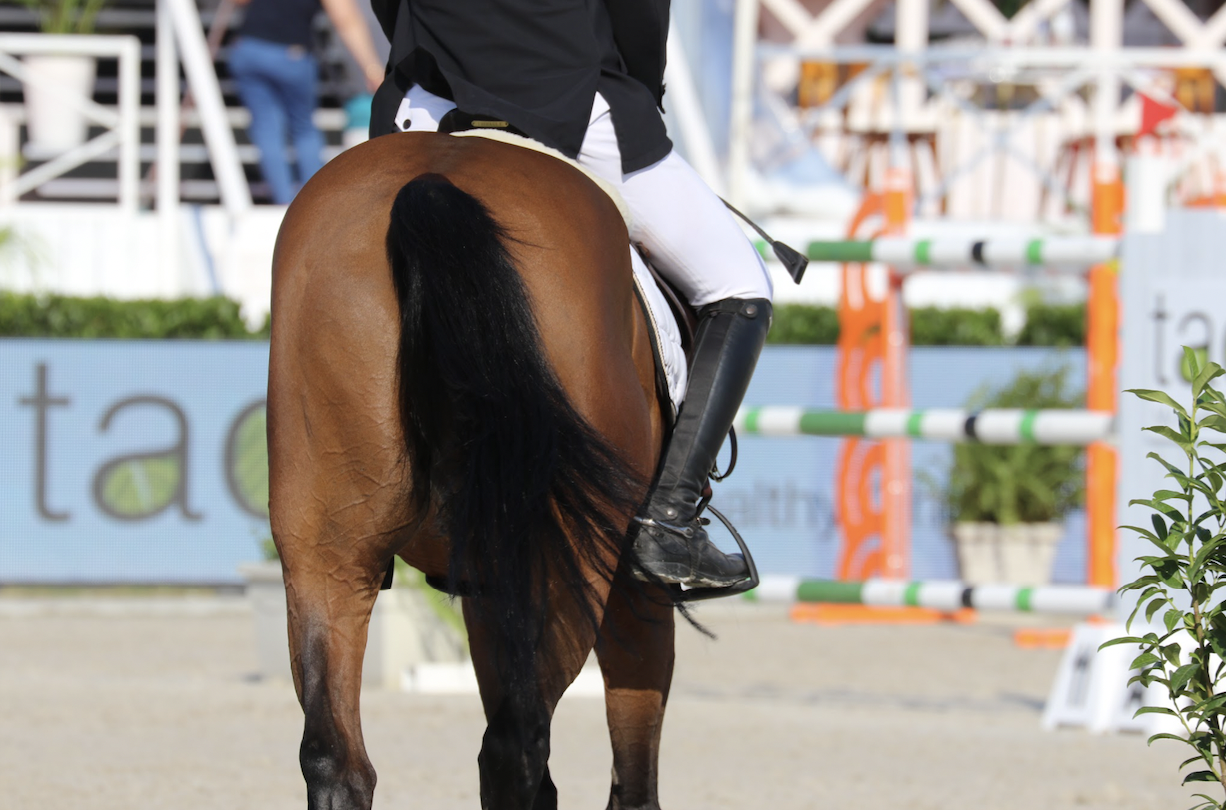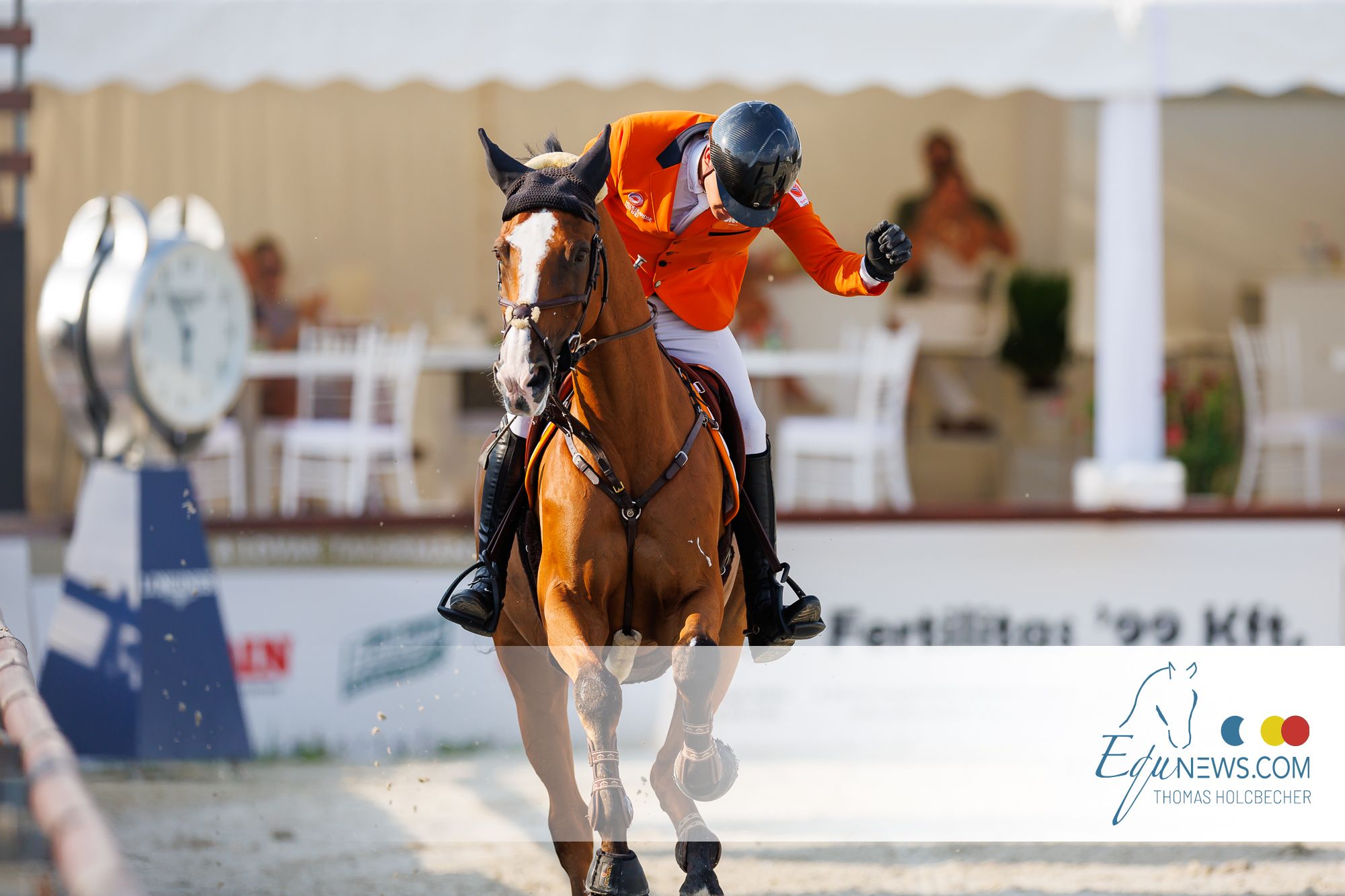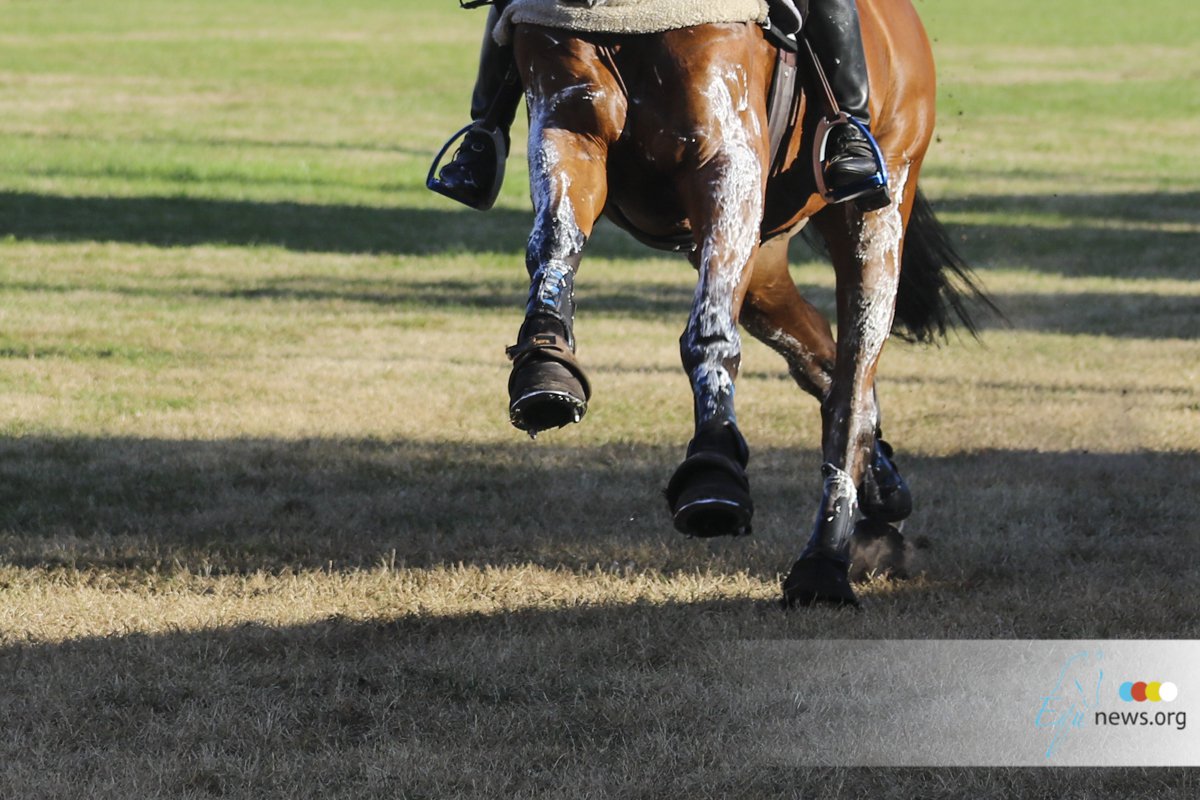China will no longer be heading to next year’s Paris Olympics, and instead, Japan will take a team spot, following breaking news of a retroactive disqualification for China’s leading rider, multi-Olympian Alex Hua Tian, and his mount Chicko from the Millstreet Group F & G Olympic Qualifier event held in July.
The thirteen-year-old gelding Chicko tested positive in a routine drug test for the controlled medication altrenogest, better known under its UK trade name, Regumate, which is used as an oestrus suppressant for mares, which helps to regulate cyclicity throughout the phases of the reproductive season. An independent investigation conducted after the fact concluded that the horse’s ingestion of the medication was inadvertent.
Nevertheless, the positive test disqualifies Alex and the gelding from the competition, which drops China to fourth place and, as such, removes their qualification for next year’s Olympic Games. They will not have a further opportunity to qualify as a team; the two remaining team tickets will be awarded at this month’s Pan American Games, and are exclusively available to countries from North, Central, and South America.
Japan, who finished third in the qualifier on a score of 125.7, have now been awarded the team qualification instead.
Alex has responded to the news with a detailed statement:
“On the 10th of July 2023, I was notified of a positive test on my horse, Chicko, during the Groups F/G Special Olympic Team Qualifier at Millstreet for the controlled medication* (not banned substance) altrenogest, prescribed and sold in the UK as Regumate. As a passionate supporter of clean sport, with a pristine record at international level for 18 years and knowing how careful we are as a team with any risk of contamination, I was in total shock. With the support of Richard Davison, Schelstraete Equine Law, JunZeJun Law and Penny Ecroyd we put together a team of specialist vets, equine scientists and toxicologists to conduct a thorough investigation into the circumstances that led to this adverse analytical finding."
The investigation results have conclusively shown that the trace amounts of altrenogest detected inadvertently entered Chicko through urine-contaminated hay that he accessed and consumed from the neighboring stable during the competition. On the evening of June 1st, Chicko exhibited signs of mild colic and was examined by the Chinese team veterinarians at Millstreet. As mild colic couldn't be ruled out, it was decided to remove Chicko's feed and hay until the following morning. The next morning, Chicko was back to his healthy self and was declared fit by all the veterinarians to continue with the competition. However, he was instructed to receive his hay in small, regular portions throughout the day.
Due to the temporary stabling conditions and the absence of his own hay, Chicko gained access to hay from the mare in the adjacent stall, which was being treated with Regumate during the competition and routinely urinated on her remaining hay. It was unknown to me, my team, and everyone I have been able to discuss this matter with, including veterinarians and equine scientists, that altrenogest is not only excreted in urine but also in reasonably high concentrations. Chicko's blood and urine samples were taken on the afternoon of June 2nd at 15:15.
While altrenogest is a controlled substance and not banned, this led to disqualification due to FEI rules, resulting in China losing its team qualification for the 2024 Paris Olympic Games. The rider, Alex, accepts responsibility for the consequences and offers his apologies to Chinese equestrianism, his teammates, and supporters, committing to clean sport and doping prevention in equestrian sports. He has accepted the offered "Administrative Procedure," resulting in a fine but no suspension.
Source: Eventing Nation



